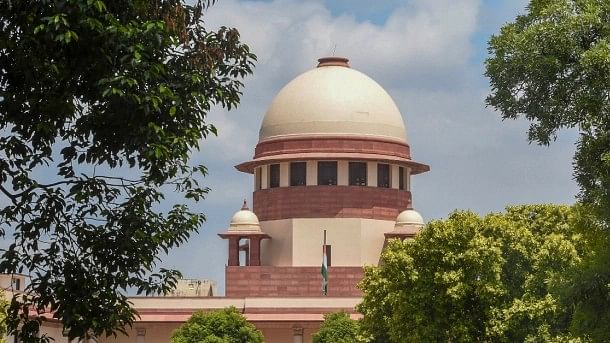
A view of the SC.
Credit: PTI Photo
New Delhi: The Supreme Court on Thursday questioned the Calcutta High Court "problematic" judgment, which advised adolescent girls to “control sexual urges” and young men to train themselves to respect women.
Taking up a Suo Motu matter registered as 'Right to Privacy of Adolescents' after the HC's verdict, a bench of Justices Abhay S Oka and Ujjal Bhuyan also took exceptions to acquittal of the accused under the POCSO Act after his marriage with the 14-year-old victim.
“It is not only about observations. See the kind of findings. From where these concepts come, we don’t know. But we want to deal with each and everything which is said,” the bench said.
The bench orally said writing such judgments is absolutely wrong. "What kind of principles the judges have invoked," the bench wondered.
Senior advocate Huzefa Ahmadi, appearing for West Bengal, submitted that the state has filed an appeal in the apex court against the October 18, 2023 verdict of the high court. He said the appeal was listed on Thursday before another bench of this court, and that bench unfortunately could not sit.
The court said the suo motu writ petition and the appeal filed by state will have to be heard together on January 12, 2024.
On December 8, the Supreme Court had said judges are not expected to "preach and express personal views" in dealing with cases. It made this observation, while issuing notice to the West Bengal government and others.
The apex court had found the Calcutta High Court's suggestions that every female adolescent should "control sexual urge/urges" and "protect her right to integrity of her body", as prima facie "highly objectionable, completely unwarranted and in violation of Article 21 of the Constitution".
The apex court had said there was absolutely no reasoning given by the high court, in its order acquitting the accused, and scheduled the matter.
